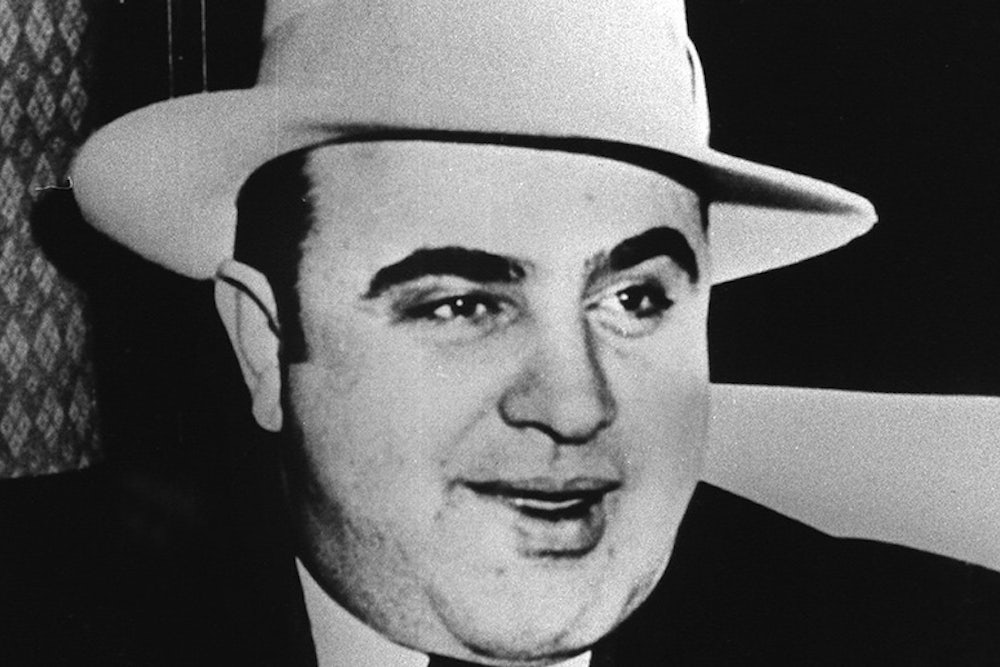Originally published on July 1, 1931, The New Republic's editorial board comments on Capone’s conviction for evasion of federal income tax.
Well informed Chicagoans differ as to whether Al Capone welcomed his conviction for evasion of federal income tax; but majority opinion seems to be that he did. While he has not yet been sentenced, it seems certain that he will receive only a couple of years' imprisonment and a fine of a few thousand dollars. The fine is nothing at all to a man of his wealth, and his life in the penitentiary will be cushioned by his money and importance, as was the case during his precious prison term in Pennsylvania. He will have a respite from the incessant fear of an assassin’s bullet; and a year, or two or three years hence, he can walk out of the prison gates and pick up his business where he laid it down.
Even if we assume, however, that Capone is going most reluctantly to jail, and that the federal officers’ victory is as complete as they not at all bashfully insist it is, the incident can still be described only as a victory for its central figure. Here is a man who has for years been the head of one of the bloodiest murderous gangs with which all our large cities are not infested. About 500 persons have been killed in Chicago in the past ten years in the bootlegging and other wars in which the Caponites have been engaged, and over and over again, the local newspapers reporting one of these deaths, have openly and calmly stated that it was the work of his men. During this time Capone has sold illicit liquor in amounts running into millions of dollars; he has kept many hundreds of young women in houses of prostitution and taken away from them most of their earnings; he has maintained numerous gambling joints where a sucker with a bankroll stood very little chance of keeping it, to say nothing of making it larger; he has been closely allied with the most loathsome of all traffics, that in the habit-forming drugs.
Nevertheless, Chicago, instead of interfering with all this activity on his part and the part of others like him, has knelt helpless at his feet. Enthusiastic young policemen who have tried to maintain the law have been “broken” for their lack of sense. Complaisant judges in their robes have hastily set his henchmen free whenever by accident they got within the toils of the law. Politicians, all the way up to the mayor’s office, have taken his dirty money and given immunity. Capone hasn’t merely bought the government of Chicago; he has been that government. And so far as we are aware, he still is. The recent election changed one set of unspeakable politicians for another group, not quite so brazen in effrontery but animated by the same set of ideas. The peace and contentment in gangdom today are sufficient evidence that they haven’t cleaned up Chicago, and don’t intend to.
At the worst, therefore, all that can be said of Capone is that he failed to fix the national government as he fixed that of Chicago (and as far as necessary, the state of Illinois). The national government is harder to fix, though it can be done: vide the Ohio Gang during Harding’s time, the scandals in connection with tax refunds to numerous wealthy men and corporations, the complaisance of the Federal Power Board and other instances which will rise in the mind of any of our readers. There is no difference in principle between Chicago and Washington; when government by racketeer has gone far enough, no doubt the arrangements will be extended to the national capital as well. In the meantime, let’s hear no more about Capone’s defeat. The defeat is Chicago’s.
